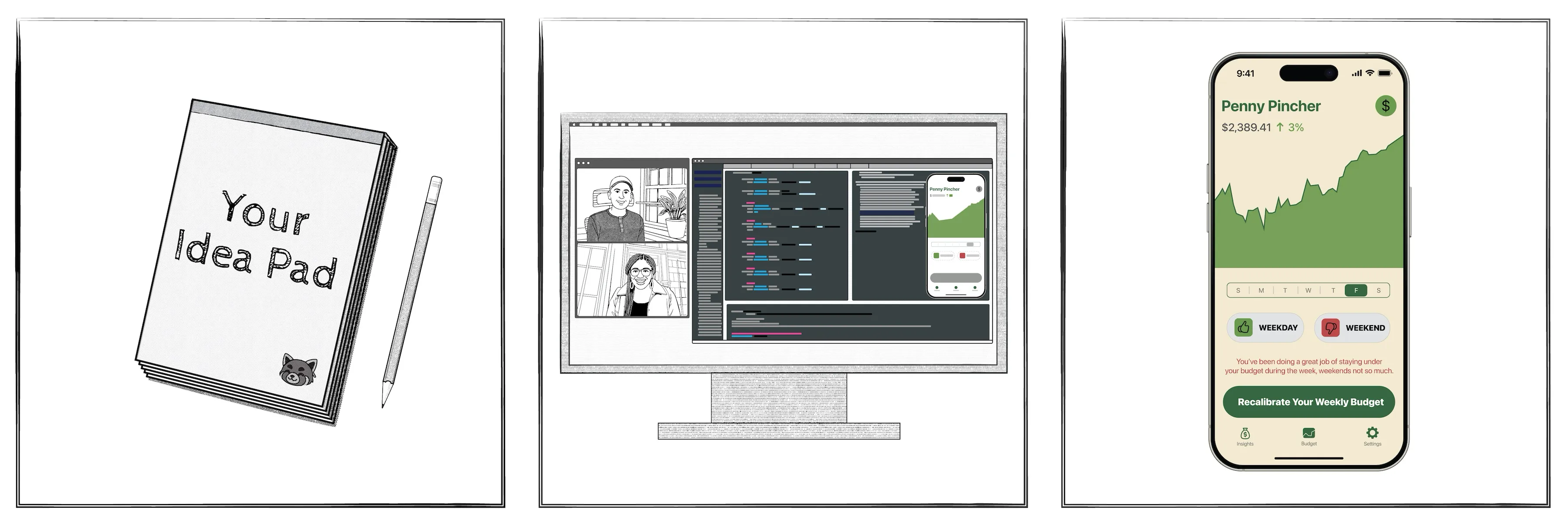The Past, Present, and Future of AI Workshops with @mergesort
The short version of this post is that:
- I’m publicly launching the AI Workshops I’ve been running since April.
- I’ve taught dozens of people (technical and non-technical) who swear by the results.
- It would mean a lot if you’d check them out — and even better, sign up! (P.S. They’re a fantastic use of your company’s Learning & Development budget.)
But I also want to tell you how this all started, and why I believe I can help you learn something life-changing.
My First Workshop
On a crisp spring evening last April, my friend Jeremy came by my house after I’d made him a promise. He’d been telling me how AI was changing his life. He’d gotten deep into organizing everything he cared about across a myriad of Claude Projects. He had projects for his health, his finances, and so much more. Each one had complex instructions, contained contextually-relevant documents, and thoughtful prompts. He was clearly motivated to get useful results from AI.
So I asked him what I thought was a simple question: “Are you using Claude to code — even a little bit?”
He hadn’t. Jeremy is a PM who didn’t know how to code. But having worked closely with Jeremy at Twitter, I knew he was deeply technical. He understood the product and software development process better than most people, many software developers included.
I told him we could treat code as just a detail, and that I’d teach him how to use AI for coding. I wanted Jeremy to feel how powerful it is to build your own ideas, and I’m happy to say it worked.
To quote Jeremy a few months later:
Meant to mention that coding (via AI) has become my default activity apart from family time. My now wife has to tell me “don’t code today”. I’m so grateful I’ve found this new hobby.
That night turned out to be my first AI workshop.
It Starts With An Idea
I told Jeremy to bring an idea — one that he wanted to exist — and the two of us would build it together. I knew diving in was the best way forward. I could spend hours answering Jeremy’s questions, but most of the answers would materialize in real time if we just made something he cared about.
Jeremy described a meticulous process he has when eating out. He’s trying to eat as healthy as possible, so he:
- Opens a Claude Project with his health goals, dietary restrictions, most recent bloodwork, and other relevant tests.
- Drops in a PDF of the restaurant’s menu (or takes photos if there’s no PDF) and adds it to a new chat.
- Asks which menu items he can eat and which ones to avoid for his health needs.
Jeremy wanted to automate this process. I thought the idea was interesting, and figured it would lend itself well to the two of us building a prototype.
But he wanted to take it a step further than his current workflow. Instead of dropping a menu into a Claude Project, Jeremy wanted to look up a restaurant like he would with Google Maps and have this health check happen automatically. Now this is thinking like a developer.
From Idea to App in 10 Steps
- We started by setting up the Google Places API, so Jeremy could find restaurants by name.
- I asked Jeremy to describe his idea in a Google Doc.
- He wrote a couple of paragraphs with varying levels of detail — basically riffing.
- I asked him, “if you handed this to a software developer, do you think they’d be able to build this app?”
- He said no, and I agreed.
- I showed him how to improve our prompt, and shared examples of great prompts that could serve as inspiration.
- We began adding detail after detail after detail, until it was a full-blown PRD. Good thing Jeremy is a terrific product manager!
- Once we had a spec, we let AI loose on the problem.
- I still remember Jeremy’s face as AI began building his app. He was awestruck, watching his idea come to life right in front of him.
- Jeremy spent the next couple of hours asking me whatever questions came to mind as we made progress. I answered them so I could help him learn — and keep him excited about this mind-opening experience.
Trust the Process (And Why It Works)
That’s still how I teach my workshops. I’ve since run dozens of them, which has allowed me to refine my technique. I love seeing a person’s face light up when they have a lightbulb moment, and my real goal is to have three or four of those moments every session. That’s when a person realizes they were this close to productively building software with AI this whole time.
All you need to know is what you don’t know — and that’s where I help best. There’s some technique involved, and some technical know-how, but I’ve found that what people need most is to learn the mental models for working with AI.
I fundamentally believe people are not as far from using AI effectively as they think. You may only be a few questions away from learning a life-changing skill, but figuring out what those questions are is the hard part.
If you ask Jeremy though, the reward is even higher than you can imagine when you don’t know what you’re missing out on. That may be true for you too.
AI Workshops with @mergesort
You’ll learn how to write prompts that actually work, turn ideas into apps, and most importantly — build the confidence to work effectively with AI on your own.
What I care most about in this world is helping people become the best version of themselves — however they envision that to be. That’s why I personalize every workshop to the attendee or team.
I know that real learning only happens when you meet someone where they are, rather than giving them slides to read or videos to watch and hoping they figure out what matters. I’ve always been a good teacher, but what I’ve discovered is that I’m quite good at doing this — teaching people a lot and inspiring them to do more in a short period of time.
If you don’t believe me, you can believe the people who have taken my workshops so far.
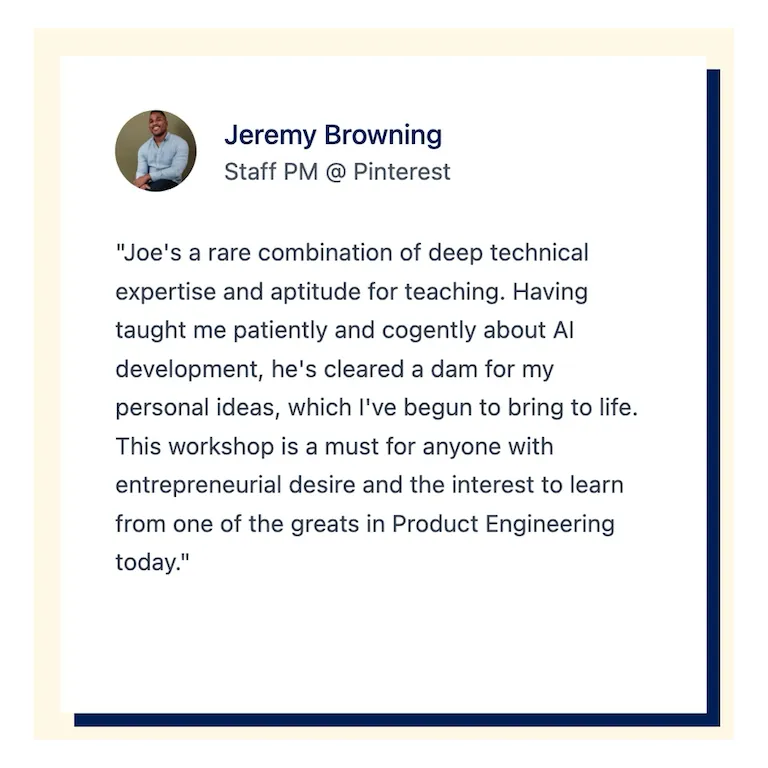
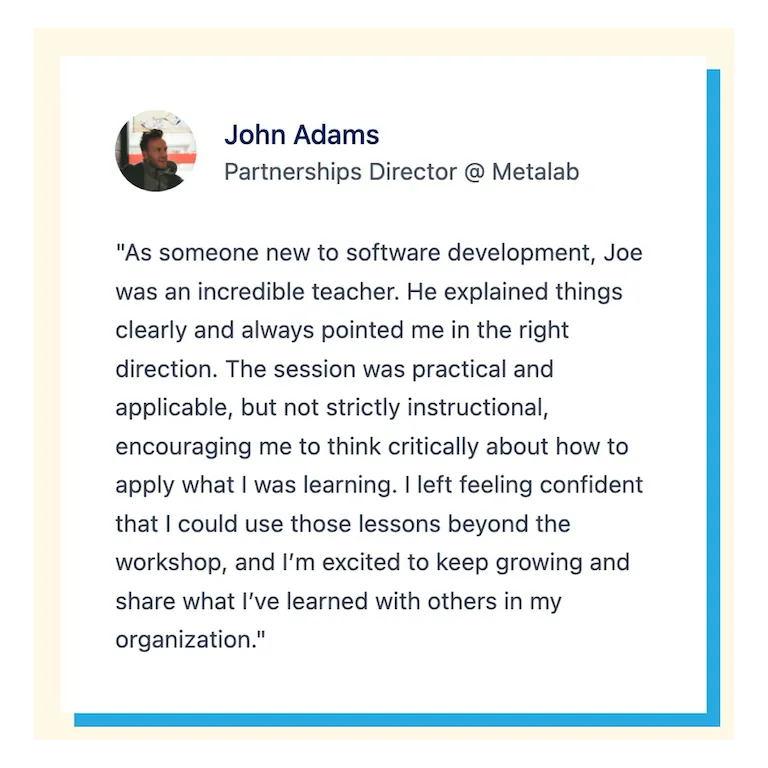
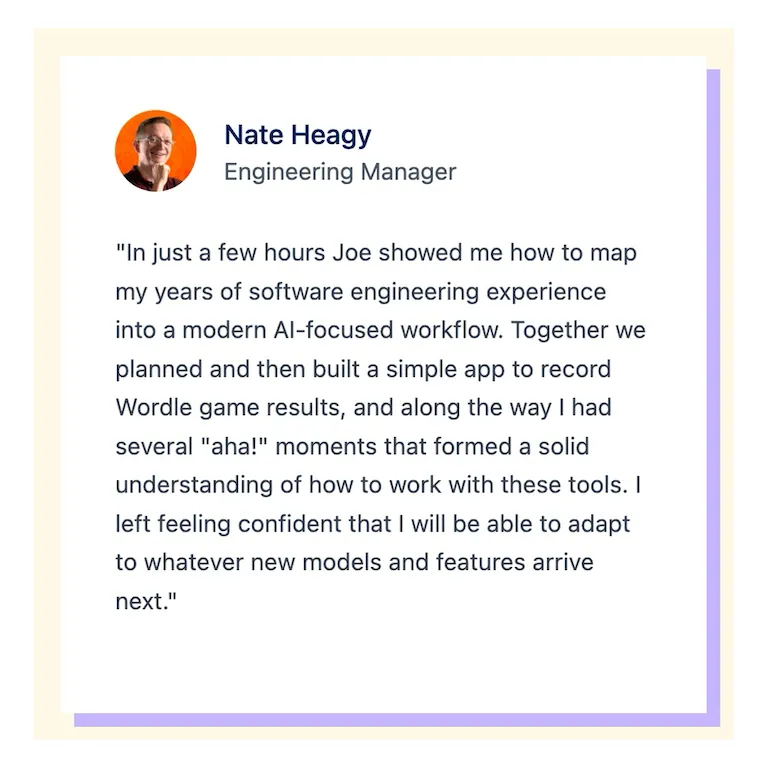
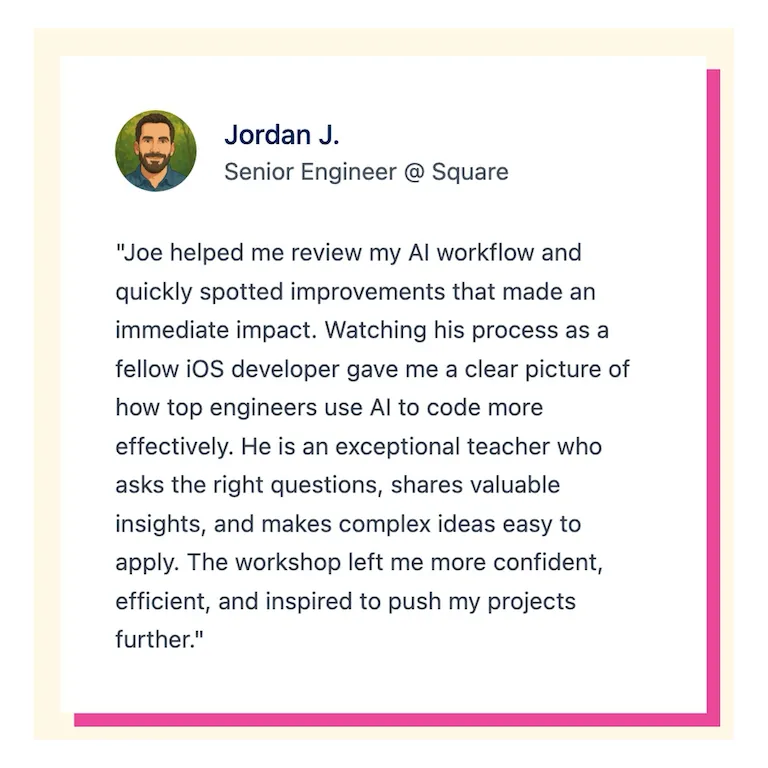
I’ve managed to run all of these workshops before launching publicly because word of mouth spread me so thin that I haven’t had time to launch publicly! I spend all my time teaching AI now — whether that’s running these workshops, helping non-technical people at a local non-profit (who are building real products despite no previous software experience), or on stage at conferences like NSSpain. My life for the last six months has been teaching AI (and building Plinky with the help of AI), and I’m only getting better at it.
Six Months of Teaching (And Building)
I’m not the only one building with AI.
- Jeremy is building apps for himself, his family, and friends. He recently sent me one of his new apps, and I continue to be proud of what he’s done and how far he’s progressed.
- My workshop attendees often write back within 24-48 hours to tell me they’ve built something they’ve been wanting for years — something they would never have made without AI doing the heavy work. (One attendee built an app his wife had wanted for four years in just a few hours — so I’m available for marriage counseling too.)
- A team of three that I mentored at the non-profit have started a small B2B business despite having zero prior coding experience. They’ve built a real product that solves a real business pain point, and just made their first sale to an enterprise customer.
Whether you’re a designer, product manager, founder, or just someone with ideas — if you can describe what you want, you can build it. And the workshops work great for developers too; I love going deep and technical on how to work better with AI.
Now Let’s Talk About You
AI has the potential to be the most life-changing invention of our lifetime. The question I want you to ask yourself is: “How will it change your life?”
AI is becoming a foundational skill that everyone will need — like literacy or math. But we’re only at the beginning of this transition, and many people still struggle to get good results. They often believe AI simply can’t do certain things that I know it can, and I can show you how.
This is what I teach best: helping curious and creative people solve real problems with AI. I go beyond techniques to teach fundamentals and build your confidence to use AI every day in ways that matter. These skills scale from small tasks to large projects and work across every tool — from Cursor to Claude to ChatGPT — and they’ll work for whatever comes next too.
To be real for a moment — look, I know this reads like a sales pitch. But bring an idea and see for yourself how much you can learn in a short time by building it. I’m just a person who wants to see you be the best version of yourself, and I bet one conversation is all it takes to get you there.
